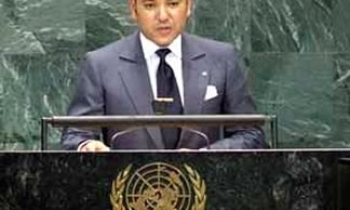One of the biggest failures of the Nigerian media is its inability to purge itself of all hurtful presuppositions that generate a gulf between its news reports and the people whose lives reflect in or are shaped by that news.
Indeed, there is a continuously shrinking space in our newspapers, for stories of the pedestrian daily existence of people on the blind spot of the social spectrum. The preferred stories are the issues of the moment that resonate in virtually all parts of the country, and presumed to be of immense interest to everyone.
So, what would the public love to read? Their preference is mostly overshadowed by editors’ presumptuousness. No doubt, the public would like to read reports about the shocking activities of those in government. But they would, as well, be interested in reading news reports that feature "small" stories that affect them, directly: absence of safe drinking water; poor state of public schools and the teachers’ unrelenting demand of illegal levies from parents; the illegal sale of a community’s only public park to a private developer, and several other stories that easily get swamped in our press. Such stories receive nothing more than a perfunctory mention because they are seldom considered newsworthy or, more appropriately, incapable of selling the paper.
Indeed, like Dele Olojede (US-based Nigerian journalist and Pulitzer Prize winner) observed, "the idea of what news is appears to have eluded us." Writing about next-door’s event is by no means a perfunctory duty. It is, essentially, a product of conviction the conviction that the media could serve as an icon of development and good governance at grass roots level. That is what I think journalism should strive to attain. Unfortunately, that task remains an overwhelming challenge. The future of the Nigerian newspaper should lie in its adoption of a community-based outlook and not in its obsession to be seen as national. That is the realisation that gave birth to Island News, a free community newspaper covering the Ikoyi, Victoria Island, Lagos Island and Lekki community. The Island News is nurtured by the philosophy that strongly repudiates the frenzied pursuit of "topical issues" at the expense of the "little" event next door. The community press presents an opportunity for a re-invention of news; an opportunity to challenge the notion that news emanate, necessarily, from activities of public officials or from boardrooms of blue chips.
The strong public cynicism that Island News had to contend with in the early months of its debut was hinged on the premise that a newspaper cannot possibly survive without a cover price. The success of Island News represents a major contradiction of one of several rigid paradigms in the Nigerian media. Some might dismiss this remark with the suggestion that the paper’s success is merely bolstered by the fact that it has no cover price.
But the response of readers and advertisers has been quite remarkable. The readers’ enthusiastic response serves as a strong proof that they would have bought the publication if it were sold. They would have bought the publication because it has initiated a paradigm shift from the politics-fixated mainstream press, which is, in large part, responsible for the pronounced decline in readership base (we often erroneously attribute decline in newspapers’ sales figure over the years simply to Nigeria’s unwholesome economic state).
Barring the philosophy that underpins Island News’ editorial policy, writing about the concerns of parents in Lagos Island and Obalende that artisans who run apprenticeship schemes make unusual pecuniary demands from youths under their tutelage as a pre-condition for certification would have been an unlikely story. It may have been overshadowed by an "exclusive" deemed to have a high commercial worth. But for those concerned, that story was far more important than any political party convention.
The rebirth being canvassed cannot be actualised only via the community press. It could be achieved in the mainstream press as well. But it is contingent on certain factors. There has to be less emphasis on what the government, or any of its official, intends to do. The emphasis should be on whether those planned projects that received immense media attention were actually implemented. Also, those accustomed to looking to Abuja for lead stories should not control the newsroom. It’s nice to be informed about the policy that requires banks to set aside ten per cent of their funds for loan-seeking small and medium scale business owners.
But it would be interesting to know how successful that policy has been. If there has been a sufficient media focus on the Small and Medium Enterprises Equity Investment Scheme (SMEEIS), the factors that hinder small businesses’ access to the funds would have become apparent and possibly eliminated. Of course, the public would have seen that many companies flaunted by some banks as beneficiaries of the scheme do not qualify as small and medium enterprises.
Closing the gap between the newsroom and the community would require a greater focus on activities at the councils, which have for long been shuttered from public scrutiny. Excessive media attention on the federal, state government and other stories that make our news presentation rather predictable, have made almost all of the country’s local councils a breeding ground for bare-faced corruption.
Whereas budget presentation at both the federal and state levels are an annual ritual taken for granted, the single most important fiscal target for most council heads is seeking out ways and means of strengthening their revenue collection teams. That mindset undermines the dream that local councils would be a catalyst for community development. It reflects also in some of the municipal blights in our cities especially street trading a large revenue pool for councils.
Taking a keen interest in grassroots’ affairs will surely check the sleaze at the councils and, hopefully, compel the authorities to activate units such as agriculture and community development department. Its activation promises a much reliable poverty eradication programme, a more credible and sustainable alternative to donating a few motorcycles to some party faithful.
Laurence Ani is editor of Island News and a member of Journalists’ Network for Community Development (JONET)









